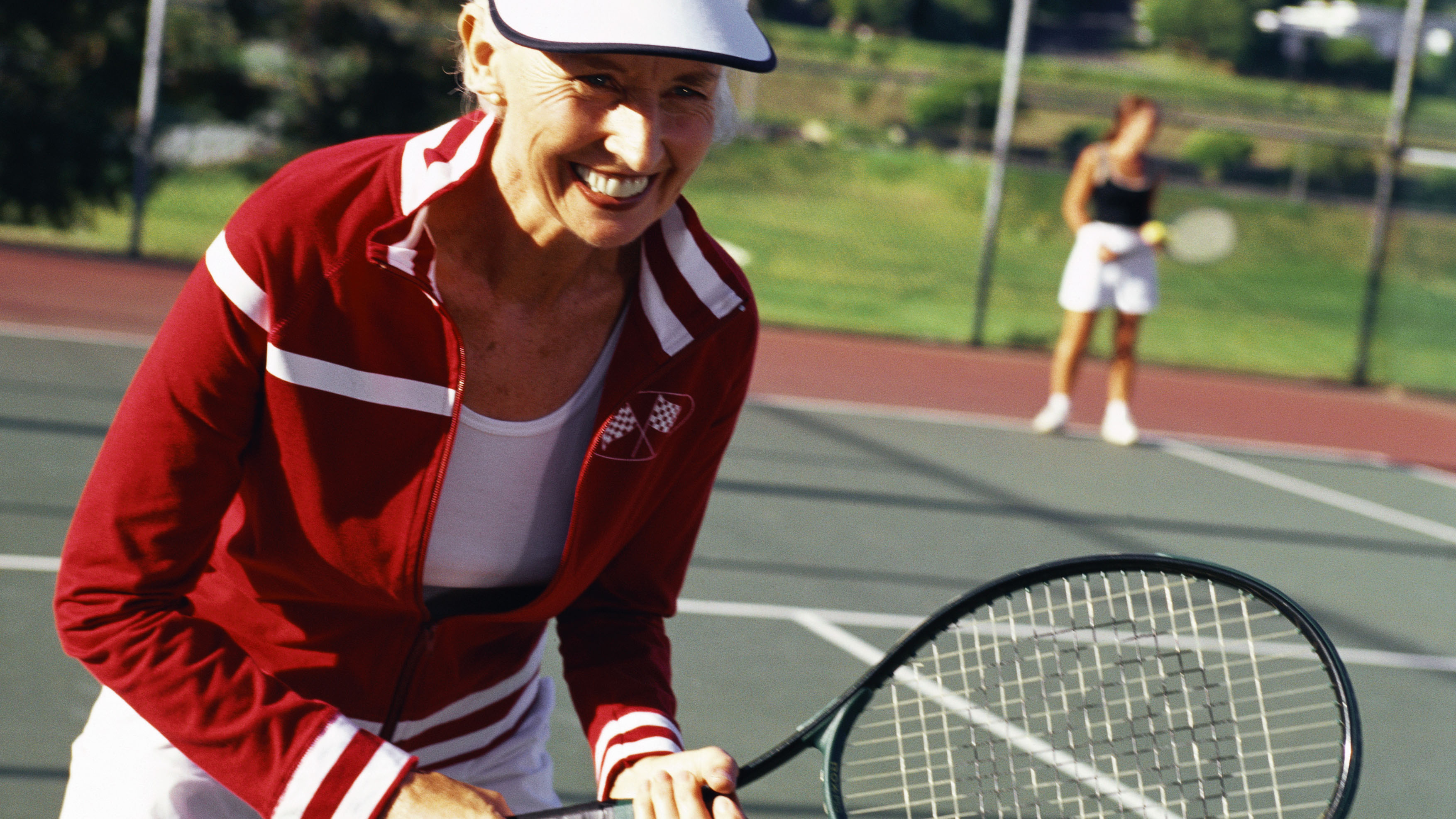How to lose weight in menopause
Instead of dieting harder, it’s time to get smarter. We show you the best ways to lose weight in menopause


If you’re struggling to lose weight in menopause, let us assure you: it’s not all down to overeating.
Hormonal changes, broken sleep, stress and reduced muscle mass can all play into menopausal weight gain. So to lose weight in menopause you need more than just a diet - you need to understand your body.
Below we talk you through some of the root causes of menopausal weight gain, along with the best diet and exercise approaches, so can you start to work with your body instead of against it.
Why is it hard to lose weight in menopause?
There are myriad factors that may make it harder to lose weight during menopause.
First of all, there’s the fact that the fat cells contain a weak form of oestrogen.
“Women’s bodies need oestrogen and when those levels start to decline during the perimenopause and menopause, the body can try to create more by building up fat stores,” says GP and menopause specialist Dr Louise Newson.
“Menopausal women also respond differently to sugar and are at greater risk of becoming insulin resistant, which can raise the risk of diabetes as well as weight gain.”
Get the Fit&Well Newsletter
Start your week with achievable workout ideas, health tips and wellbeing advice in your inbox.
And that’s not all. Nutritionist Emma Ellice-Flint explains that with less oestrogen to calm our sympathetic nervous system, we are more likely to feel stressed in the menopause.
“Stress causes the body to release the hormones cortisol and adrenaline which, in turn, release glucose (sugar) into the bloodstream. We generally don’t need the extra glucose, because we are not fleeing or fighting an invader, so our body lays it down in abdominal fat cells.”
Add to that common menopause symptoms such as disturbed sleep (“studies show that poor sleep leads to poor food choices the next day,” says Emma) and joint aches that can make us less likely to exercise, and you’ve got a perfect storm for weight gain.
And as if the hormonal battle wasn’t enough, Dr Sally Norton, a surgeon and weight-loss consultant, adds: “There is a steady decline in muscle mass as we age (around 8% per decade after 40 - unless we compensate by exercising).
"Since muscle burns more calories than fat, less muscle means less calorie burnt and more weight gain. Plus there’s some evidence that lower levels of ‘fat-burning’ brown fat may contribute to the middle-age spread, too.”
Best diet for weight loss in menopause
Changes to your diet can help when it comes to weight loss in menopause. Consider trying the following:
- Reduce sugar and carbs
Nutritionist Penny Crowther recommends reducing sugar and grain-based carbs such as bread, pasta, rice and also potatoes to help reduce the glucose in our system and balance insulin.
“Faulty insulin metabolism means fat is more likely to be dumped around the middle," she says. "Fasting overnight for 12-14 hours can help too.”
- Up your intake of healthy fats
“Our bodies need healthy fats such as extra virgin olive oil, seafood, nuts, seeds and avocados," advises Emma.
"If we don’t get enough we will crave more food, probably leading us to eat more sugar and simple carbohydrates,” she says.
- Eat more phytoestrogens
Include more foods containing phytoestrogens in your diet, such as soy (e.g. organic tofu), legumes, pulses, beans, wholegrains and flaxseeds.
“Phytoestrogens can have a beneficial oestrogenic effect in the body,” says Emma. “They lock on to oestrogen receptors and produce a weak oestrogen effect which may help ease some of the menopause symptoms that are leading to weight gain.”
The best exercises for weight loss in the menopause
The following workouts are amongst the best exercises for weight loss in menopause:
- HIIT
“High-intensity Interval training can be really effective exercise for menopausal women as it has been shown to help improve insulin resistance and reduce abdominal fat,” says Emma.
- Yoga and Pilates
Both yoga and pilates are great for relieving stress and reducing those glucose-releasing hormones cortisol and adrenaline.
- Resistance training
“Counteract the decline in muscle mass by using weights or bodyweight to build up your muscles, which will burn more calories,” says Dr Norton.
- Outdoor exercise
“Studies show that exercise, especially in the cold, can help increase fat-burning brown fat,” says Dr Norton. Why not follow the lead of The Gower Bluetits and create your own cold water menopause swimming group?
Penny has also been a keen outdoor swimmer for over 30 years. She says: “There are lots of claims made about the benefits of cold water swimming, including strengthening the immune system, improving circulation, reducing stress, increased calorie burning and boosting oestrogen levels, some of which are supported by science."
Expert tips for menopause weight loss
- Consider HRT
Dr Newson advises that, since declining oestrogen is likely contributing to weight gain, hormone replacement therapy can often help improve things.
- Don't go it alone
“Weight gain should be addressed in the context of a proper menopause consultation,” says Dr Deborah Lee of Dr Fox Online Pharmacy.
“We know that poor sleep, tiredness, mood swings, anxiety and depression cause emotional eating. The NHS offers help and support which can be accessed by seeing your GP so don’t try to go it alone.”
Claire is a freelance health, fitness and food journalist who has written for titles including Women’s Health, Top Santé, Woman & Home, Feel Good You, the Telegraph and Independent. She has a passion for being outside in nature and you’re more likely to find her walking in the woods or joining an exercise class in the park than pounding a treadmill in the gym. She also has a special interest in nutrition and healthy eating, having previously been Food Editor at Top Santé magazine. Her top fitness tip? Take your exercise outdoors wherever possible. It has been shown to boost the physical as well as mental health benefits of a workout and also to make you more likely to want to do it again!